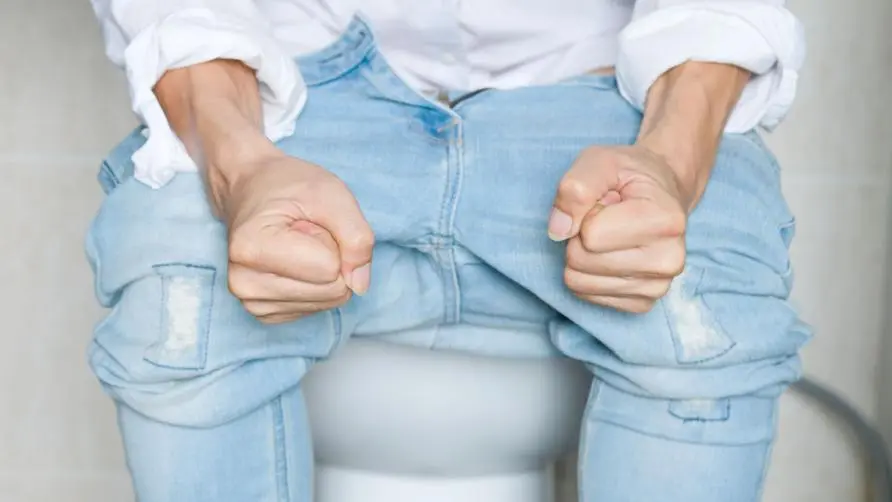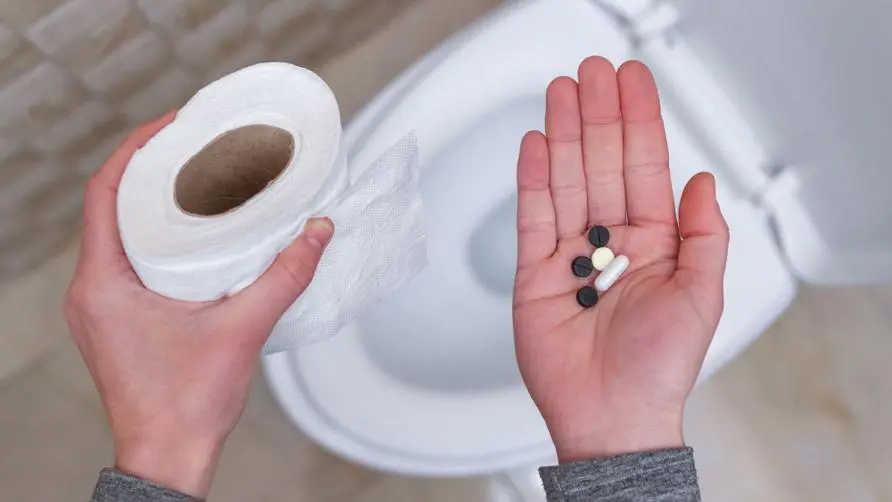Does having a bowel movement every day mean you are not constipated? Doctors reveal 6 principles for smooth bowel movements: Don't hold back if you feel the urge to defecate

Modern people go to great lengths to satisfy their appetites, such as spring wine dinners after the New Year, or meals and drinks when gathering with relatives and friends, which may quietly increase the burden on the gastrointestinal tract. If not careful, it will cause office workers, eating out, etc. The “constipation” problem that bothers many people. Dr. Zheng Naiyuan, chief director of Lian On Preventive Medicine Institution, said that having a bowel movement every day does not necessarily mean that there is no constipation problem. People must have a correct understanding of the frequency of bowel movements.
Does having a bowel movement every day mean you are not constipated? What is the Bristol Stool Classification?
Dr. Zheng Naiyuan pointed out that many people know that they need to observe their bowel movements to confirm intestinal health. But having a bowel movement every day does not mean that there is no constipation, and having a bowel movement every 2 or 3 days does not mean that constipation is serious. Medically, if you want to determine whether you have constipation, the “pattern” and “frequency” of defecation need to be considered together.
The frequency of defecation for each person will vary depending on the speed of gastrointestinal motility and eating habits, so there is no specific standard. For example, those who mainly eat prototype foods and consume a large amount of high-fiber foods may have relatively more frequent bowel movements; but if they are on a diet every day or even have an unbalanced diet, the frequency of bowel movements may decrease accordingly. According to research, generally speaking, the acceptable frequency of bowel movements is no more than 3 times a day and no less than 3 times a week.
In addition to the frequency of defecation, the pattern of defecation is also important. At present, medicine mainly relies on the “Bristol stool scale” to judge the differences in defecation patterns. According to the picture above, if the pattern of stool during defecation is close to type 1 and type 2, there is a possibility of constipation; even if defecation is performed every day, the risk of constipation cannot be ruled out.
Could fecal obstruction lead to ischemic enteritis? 3 major tests to determine whether constipation is harmful
Dr. Zheng Naiyuan emphasized that if constipation is caused by diet and living habits, it will not cause much harm to the body; what you really need to worry about is constipation caused by diseases such as irritable bowel syndrome and colorectal cancer, or due to age, gastrointestinal problems, etc. Fecal obstruction caused by slowed peristalsis may further lead to the possibility of ischemic enteritis. But how do you know whether constipation is harmful to you? It mainly relies on the following measures to clarify:
Physician consultation: Determine what constipation may be through medical history and physician consultation, and determine whether the patient is really constipated.
Physical examination: mainly digital examination of the anus and rectum.
Colonoscopy: It is impossible to directly determine whether there is constipation, but for those who complain of constipation, it can be used to find out whether there are other causes of constipation, such as polyps or tumors.
Don’t hold back if you feel like having a bowel movement! 6 principles of medical treatment to relieve constipation
Dr. Zheng Naiyuan said that if you want to make your bowel movements smoother, the most important thing is to start changing your daily life patterns. In particular, you should keep the following 6 tips in mind:
Ingest enough calories: The amount of calories consumed will affect the peristalsis of the large intestine, so the daily intake of calories must be able to meet the body’s physiological needs.
Eat enough fiber: Fiber can be divided into two types: water-soluble (such as fungus, okra) and non-water-soluble (leaf vegetables, mushrooms). It is recommended that people not only consume enough fiber every day, but also increase water-soluble fiber. Sexual fiber intake.
Take in enough water: Especially when you first get up, you can drink a glass of warm water to promote intestinal peristalsis and facilitate defecation.
Go to bed early and get up early: The intestines are more active in the morning, so it is recommended to go to bed early and get up early, and have regular bowel movements during the day when the intestines are active.
Fixed defecation time: Increase the urge to defecate and maintain a fixed defecation time by eating breakfast, drinking more water, walking after getting up, or external massage.
Don’t hold back the urge to defecate: People with irregular defecation times may not be able to go directly to the bathroom to defecate due to daily activities such as commuting and meetings. This may affect intestinal activity in the long run, and feces may stay in the intestines for too long, causing constipation. The feces is too dry.
Finally, Dr. Zheng Naiyuan reminded the public that most people assess whether they have constipation by relying on their feelings, such as whether their stomach feels comfortable after defecation, whether it is difficult to defecate, etc. However, this does not mean that constipation problems actually occur. It is recommended that if people have related problems, in addition to seeking medical evaluation, they must maintain a good lifestyle. It is also recommended that regular colonoscopy screenings be performed to help keep the “intestinal” healthy and free of burden.
Further reading:





